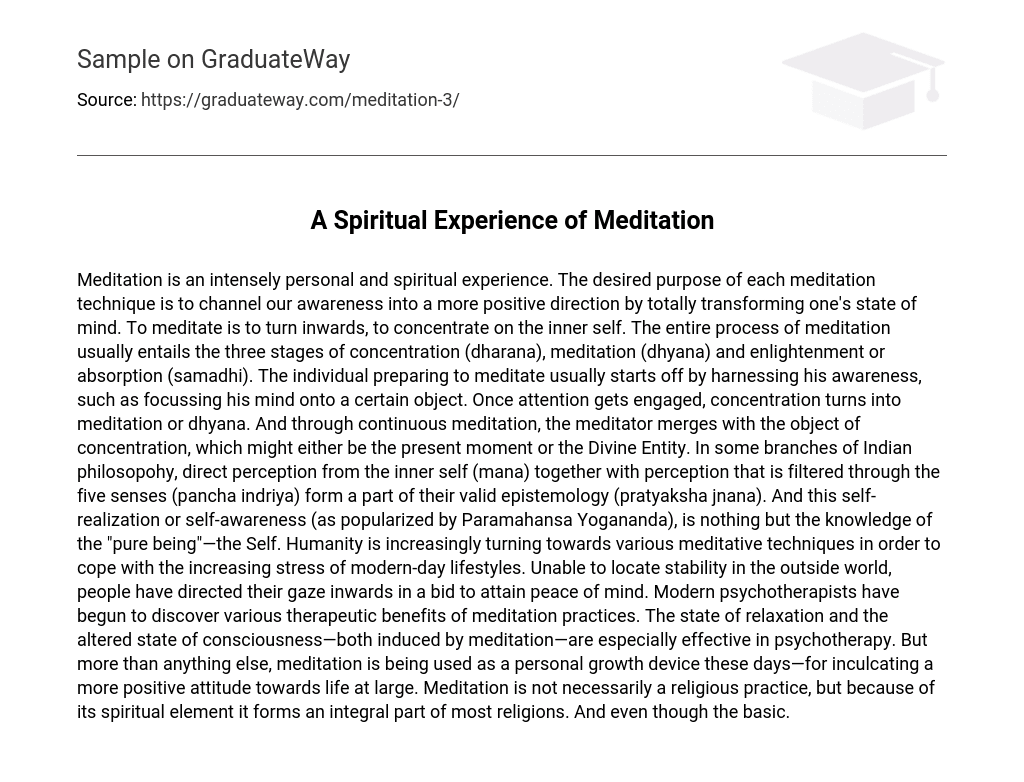Meditation is a personal and spiritual practice aimed at redirecting awareness towards a positive mindset. The goal is to transform the state of mind by focusing inward and concentrating on the inner self. Generally, meditation consists of three stages: concentration (dharana), meditation (dhyana), and enlightenment or absorption (samadhi). In the beginning of a meditation session, individuals typically concentrate on a specific object, which leads to deeper focus and ultimately results in meditation or dhyana.
Continuous meditation allows the meditator to unite with either the present moment or the Divine Entity, which can be the object of concentration. In certain branches of Indian philosophy, valid knowledge (pratyaksha jnana) includes both direct perception from the inner self (mana) and perception filtered through the five senses (pancha indriya). This understanding of the “pure being”—the Self—is popularized by Paramahansa Yogananda and represents self-realization or self-awareness.
In response to increasing stress in modern-day lifestyles, individuals are turning to various meditative techniques for coping. They redirect their focus inward in search of inner stability and peace of mind. Modern psychotherapists are also discovering numerous therapeutic benefits associated with meditation practices.
Both relaxation and altered consciousness obtained through meditation have been shown to be beneficial in psychotherapy. However, in modern times, meditation primarily focuses on personal growth, particularly fostering a more positive perspective on life. Although meditation is not inherently connected to religious rituals, its spiritual elements make it an essential part of numerous religions.





